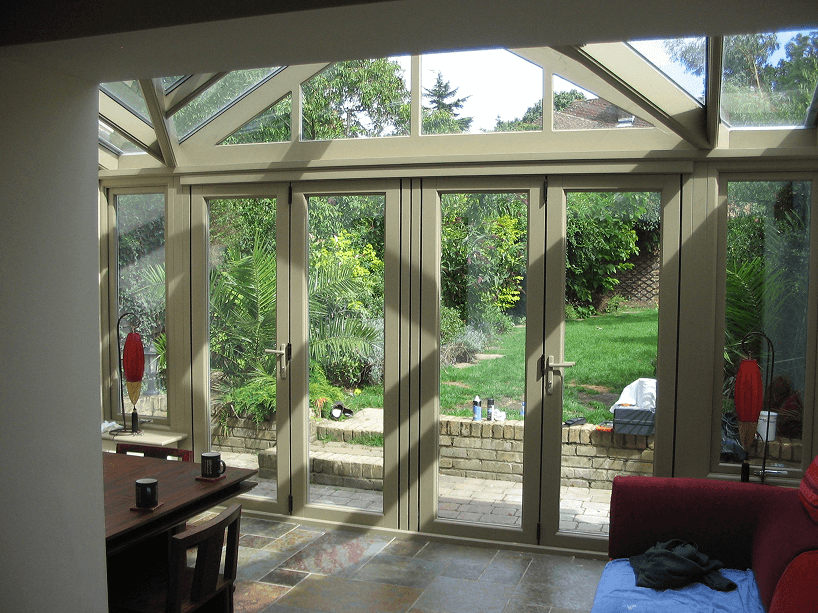When it comes to windows and doors, the choice of timber is paramount to ensuring longevity and performance. Whilst there are many factors to consider such as sustainability, insulation and cost; durability is by far the most important aspect. Choosing substandard or inappropriate timber could lead to costly repairs and early replacement.
Understanding Timber Durability
Timber stands out as a timeless and versatile choice for crafting windows, bringing a natural warmth and classic aesthetic. When navigating the world of timber, it’s essential to grasp the various types available. Softwoods like pine and cedar are often the most popular due to their affordability and ease of working with, while hardwoods such as oak and mahogany, while more expensive, earn their reputation for robustness and long-lasting durability.
Understanding grading systems becomes key in evaluating the quality and endurance of timber. Certification standards like TRADA (Timber Research And Development Association) classify wood durability, with the lower classes indicating higher quality. The Forest Stewardship Council (FSC UK) also plays a pivotal role in ensuring responsible forestry practices.
Opting for Class 1 FSC-certified hardwood emerges as a choice that not only offers maximum durability but also aligns with sustainable practices. Admittedly, it comes with a higher price tag, but the investment is justified by its longevity. Conversely, softwood may be cost-effective and sustainable, yet it lacks the durability required for outdoor use. Properly treating softwood will help to extend its lifespan, but it still falls short of the lasting power and structural integrity that hardwood provides. This is why our commitment is to exclusively use FSC-certified hardwood, ensuring a blend of durability and sustainability for our projects.
Imitation Timber
Imitation hardwood windows are gaining popularity, providing solid performance at a reasonable cost. While some may seem almost identical at first glance, their overall performance will naturally fall short. uPVC windows (Unplasticised Polyvinyl Chloride) typically need replacement every two decades, whereas well-maintained timber can outlast them by many years. Though uPVC can offer good insulation with proper installation, timber is naturally insulating and will regularly deliver a superior performance.
What Influences Timber Durability?
Certain timber species are naturally resistant to decay and insects; teak, redwood and cedar, renowned for their natural durability. Opting for timber that aligns with environmental conditions can lead to long-term savings as a result of minimised maintenance needs. Teak, in particular, stands out as a superior choice in damp conditions due to its innate resistance to water and rot.
Treatments for timber involved applying protective substances aimed at enhancing longevity and durability. Pressure treatment, for example, infuses preservatives into the wood, while chemical treatments are aimed at repelling pests.
As sustainability becomes more important in our everyday life, eco-friendly treatments such as borate treatments are gaining popularity. These options effectively strengthen wood without causing harm to the environment. The careful consideration of timber species and treatment methods ensures a balanced approach to construction or manufacturing, taking into account both performance and environmental impact.
Maintaining Timber Durability
Ensuring that your timber windows are installed correctly is vital to maximising their durability in the long term. This means using the right sealants, flashing and meticulously following best practices. By doing so, you not only enhance their longevity but also ward off potential water damage, a common culprit behind timber deterioration.
Just like any valuable investment, timber windows benefit from regular TLC to keep them in top-notch condition. This includes routine check-ups, occasional touch-ups with a fresh coat of paint, resealing when necessary and promptly addressing any visible concerns that may crop up. Taking these steps ensures your timber windows stand the test of time with grace and resilience.
Common Issues and Solutions
Common issues such as wet rot, dry rot, pests, and weathering can arise. It is crucial to know how to handle and spot these problems to stay on top of maintenance; regular check-ups help catch early signs of decay or bugs creeping in.
Timber windows are fixable and timely intervention can help to prevent further damage. Restorative measures, such as patching, sealing and refinishing can all revitalise timber windows and prolong their lifespan. For information regarding maintenance of your windows, you can read our guide to window maintenance.
Environmental Impact
Historically, many traditional class 1 timbers have been obtained in ways that are not environmentally friendly. However, timber, when sourced responsibly, is a replenishable resource. Opting for FSC-certified timber ensures not just high-quality material, but also adherence to more sustainable practices.
It is quite common for homeowners to overlook what happens to their windows once they are replaced. While uPVC windows can last approximately 20 years as frames, once replaced they remain as a waste item. Timber frames, however, can be recycled, reused or composted once they reach the end of their lifecycle. As such, timber is recognised as one of the most sustainable and eco-friendly building materials in regular use today.
How can we help?
Box Sash only source FSC-certified Hardwood Timber, installed with precision and expertise and with a 50-year guarantee. If you have any questions regarding your timber windows or would like to enquire about timber window installation, contact us today.







